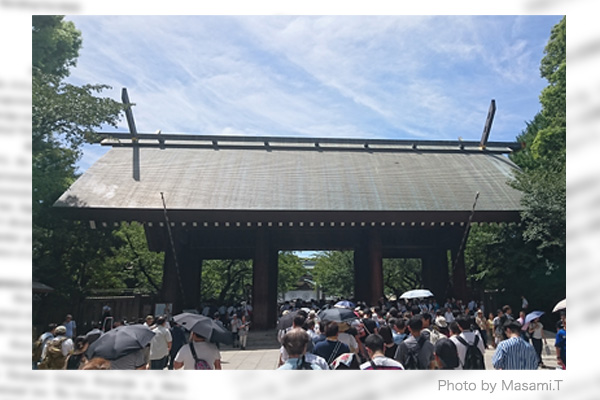Japanese Prime Minister Fumio Kishida visited South Korea for two days from May 7. According to media reports, he and his wife Yuko arrived at a South Korean air force base in Seoul on a government plane and called at the Seoul National Cemetery dedicated to successive South Korean presidents and the war dead in the Korean War and other battles. They then put flowers on the pagoda, burned incense, and offered a moment of silence. At a press conference before returning to Japan, Kishida said, "We will resume shuttle diplomacy to strengthen the relationship of trust between Japan and South Korea and open up a new era."
Seeing the media reports, I was delighted that Kishida in South Korea gave Japanese people a chance to wake up to the fact that it is natural for a normal country to pay tribute to the spirits of the war dead who sacrificed their lives for their country. This fact was more delightful for me than his pledge to strengthen Japan-South Korea relations.
Foreign dignitaries naturally visit national cemeteries
In international practice, action programs for foreign dignitaries and visiting warship crew are prepared by the host country. Kishida's program in South Korea should have been based on a plan prepared by South Korea. And a visit to a national cemetery is always included in such program in any country.
Japanese Maritime Self-Defense Force vessels visit many foreign countries every year. When they do, their commanders and crew representatives call at host countries’ national cemeteries and offer flowers. In the United States, such cemeteries would be the Punchbowl National Cemetery in Honolulu, Hawaii, and the Arlington National Cemetery in Virginia.
When foreign naval ships visiting Japan arrived at Harumi Pier, it was customary for their commanders and crew representatives to visit Yasukuni Shrine until mid-1970s. However, Japan did not take a firm stance as a sovereign nation against the policies initiated by the General Headquarters of the Allied Forces (GHQ) after Japan’s defeat of the Greater East Asia War, or the Pacific War, the spread of a masochistic view of Japanese history through the Tokyo war crimes tribunal, and defamation from within and without. As a result, visits to Yasukuni Shrine by Japanese prime ministers, cabinet ministers, and National Diet lawmakers decreased gradually.
As visits to the shrine have thus been politicized, foreign naval visits to Yasukuni Shrine have been suspended regrettably until today, despite the fact that some foreign naval officers hope to make an official visit to the shrine.
Kishida’s visit will be a step toward a normal country
Kishida has vowed to realize constitutional amendment during his term as prime minister. He should first take a political leadership through the amendment of the constitution imposed by the GHQ and offer a roadmap for the reconstruction of Japan as a sovereign nation and implement it, without reiterating his dependence on public opinion.
It would be a step toward a normal country for the prime minister, the head of a government that cherishes Japan's world-class traditions and culture and loves the country, to visit Yasukuni Shrine on the August 15 anniversary of the end of the war or during the annual autumn grand festival of the shrine. Foreign guests should also be invited to visit Yasukuni Shrine in accordance with international practice.
Koichi Furusho is a retired admiral and the 26th Chief of Staff of the Japan Maritime Self-Defense Force. He is also a director at the Japan Institute for National Fundamentals.


